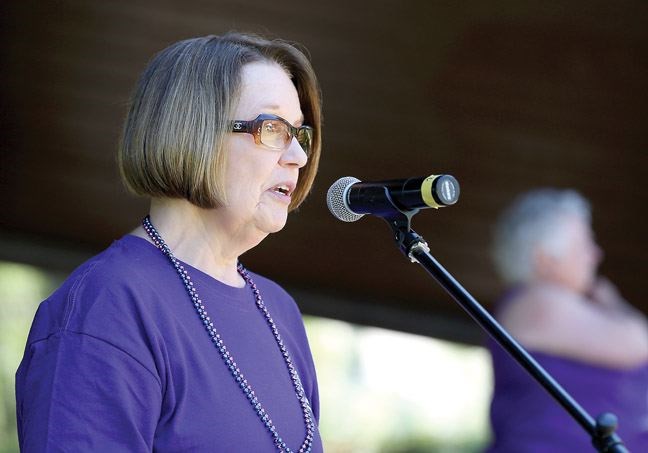Prince George-Valemount MLA Shirley Bond is being recognized by the ALS Society of B.C. for her recent work as a community advocate.
The society awarded Bond their exceptional advocacy award at an event in Richmond on Tuesday. The ALS Society of B.C. provides support and advocacy for individuals and families living with Amyotrophic Lateral Sclerosis, a neuromuscular disease that greatly reduces mobility and motor control. The group has been recognizing community leaders in B.C. with the exceptional advocacy award since 2013.
Wendy Toyer, executive director of the society, decided to recognize Bond partly as a result of her help in securing a funding grant for a research project. Toyer said the study may help hundreds of caregivers living with ALS patients.
At last year's Walk for ALS in Prince George, Bond asked Toyer about a funding application the society had made for the Characterizing the Impact of Respite Care in ALS (CIRCA) study. The study would measure the impact of providing supplemental care for individuals living with the disease. Toyer told Bond that she was still waiting on approval for the study's funding from the province.
Bond was initially shocked that the funding had not been delivered. She asked Toyer to send her some information about the study.
Weeks later, Toyer received a call from Bond. The funding request for the CIRCA study had been approved.
"I've been here for 13 years and she's been at every single walk, and every single ALS event in Prince George," Toyer said.
Bond said she was able to help along the funding application for the study by making a direct appeal across party lines to the provincial Minister of Health, Adrian Dix.
"In this case, it was a sympathetic minister who understood exactly the importance of research like this," Bond said.
"The ALS Society is very good at the work that it does in Victoria in terms of its advocacy."
The study will involve a small group of people, 70 families in total, living with ALS. Participants will undertake a psychological assessment both before and after receiving additional support from a caregiver specifically trained in dealing with the disease. Forty of the families selected for the study will act as a control group, and will not receive a caregiver.
Toyer hopes the data from the study will help demonstrate the importance of having additional care for the mental health of family members. It may also help make a business case for a future application for a larger funding for ALS caregivers throughout B.C.
"When ALS hits a family, it's not just the person with the disease, the entire family is affected," Toyer said.
"The main caregiver - in most cases the spouse - the burn-out is extreme because as the disease progresses, that person may need to be turned ten times throughout the night."
Toyer said the additional support of ALS caregivers will reduce the high rates of stress experienced by family members of patients.
Bond said she treated her work on the issue of ALS much like her advocacy of other files in the community.
"You go and you make the case. I knew how important this kind of research was going to be. So it's a matter of taking every request personally," Bond said.
Bond expressed her thanks for being recognized for the award. She commended the ALS Society of B.C. for its effective lobbying work in Victoria on behalf of families and patients living with the disease.
But Bond also took the opportunity to thank members of the Prince George community who put their own time into volunteer efforts.
"I guess what I'd say to my community is, thank you for everything they already do because people are very supportive. It is more simple than people think to get involved," Bond said.
"The benefit you receive from that is worth far more than the effort it takes."

.png;w=120;h=80;mode=crop)

